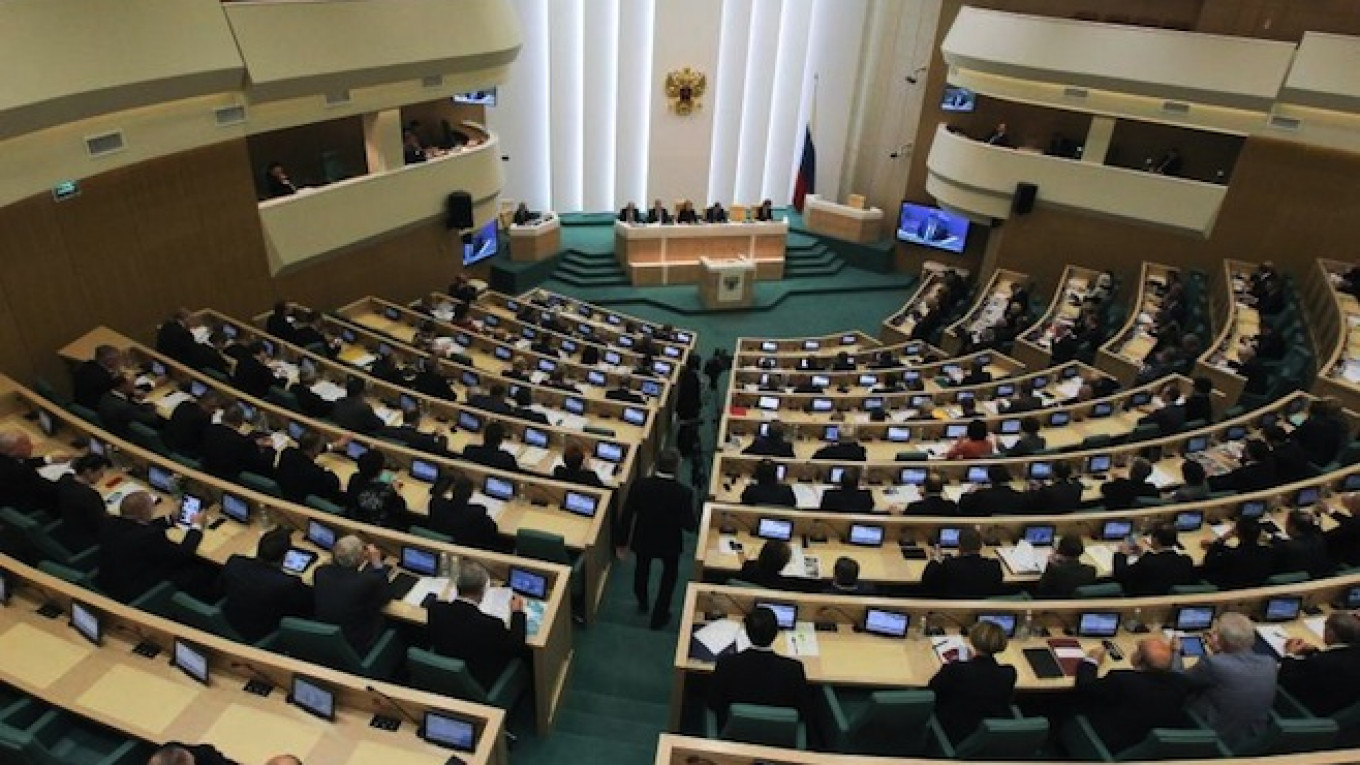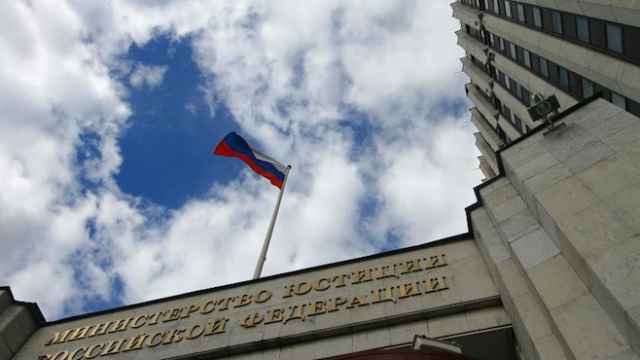The FSB, a successor agency to the Soviet-era KGB, will help the upper chamber of the Russian parliament prepare its list of foreign organizations deemed to be a threat to the country's security and whose activities will be banned in Russia, a Federation Council senator was quoted as saying Friday.
The Justice Ministry, Prosecutor General's Office and police will also take part in compiling the list, Andrei Klishas, chair of the Federation Council's constitutional legislation committee, said Friday at a meeting devoted to the list.
While the list has yet to be compiled, obvious candidates to feature on it include George Soros' Open Society Foundations, the National Endowment for Democracy, the MacArthur Foundation and the National Democratic Institute, Konstantin Kosachev, who heads the Federation Council's international affairs committee, was cited by Russian media as saying last month.
All of those organizations have their main headquarters in the United States.
“We cannot let Russia's geopolitical opponents carry out a cynical policy aimed at [establishing] a single leadership in the world,” Kosachev said at Friday's meeting of the Federation Council, according to a statement published Friday on the council's website.
After discussing the list with other senators next Wednesday, it will be sent to the Prosecutor General's Office for consideration, the RBC news agency reported.
President Vladimir Putin signed a law on undesirable organizations in May. The law tasks the Foreign Ministry and Prosecutor General's Office with creating a list of organizations that pose a threat to Russia's stability. The organizations included in this list will be banned in Russia.
In addition to Federation Council senators, lawmakers in the State Duma — the lower chamber of parliament — will compile their own list of undesirable organizations.
The Russian government has repeatedly blamed Western governments for waging anti-Russian "color revolutions" in former Soviet states by manipulating public opinion via NGOs.
In 2012, Russia passed a so-called "foreign agents" law that requires all NGOs to label themselves as foreign agents — a term widely associated with spying in Russia — if they are engaged in loosely defined political activity and receive funds from abroad.
A Message from The Moscow Times:
Dear readers,
We are facing unprecedented challenges. Russia's Prosecutor General's Office has designated The Moscow Times as an "undesirable" organization, criminalizing our work and putting our staff at risk of prosecution. This follows our earlier unjust labeling as a "foreign agent."
These actions are direct attempts to silence independent journalism in Russia. The authorities claim our work "discredits the decisions of the Russian leadership." We see things differently: we strive to provide accurate, unbiased reporting on Russia.
We, the journalists of The Moscow Times, refuse to be silenced. But to continue our work, we need your help.
Your support, no matter how small, makes a world of difference. If you can, please support us monthly starting from just $2. It's quick to set up, and every contribution makes a significant impact.
By supporting The Moscow Times, you're defending open, independent journalism in the face of repression. Thank you for standing with us.
Remind me later.






